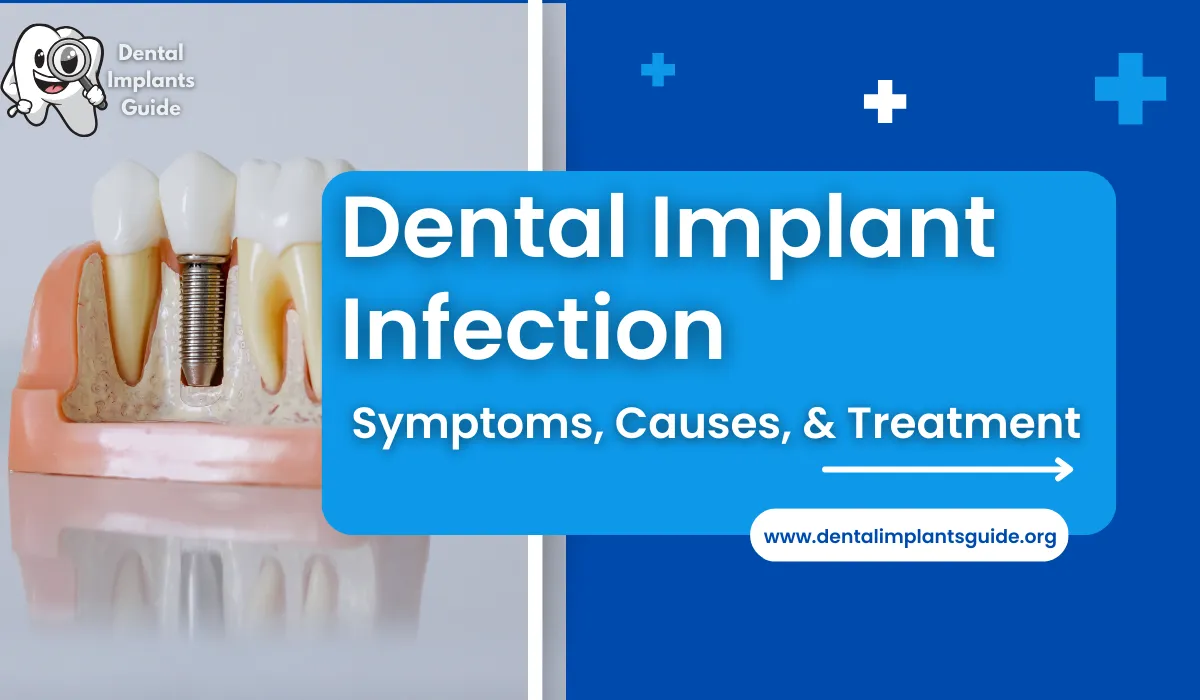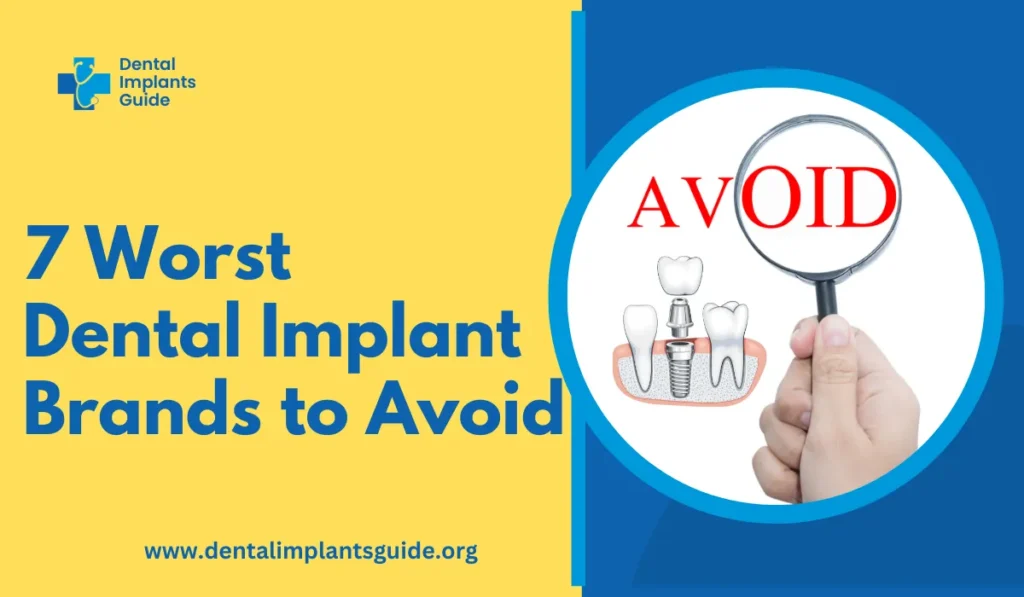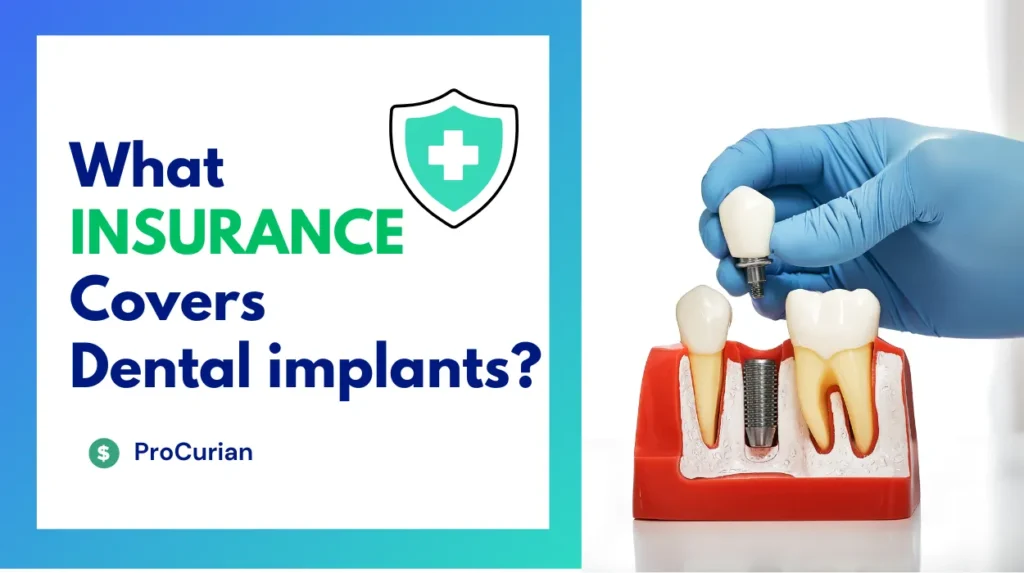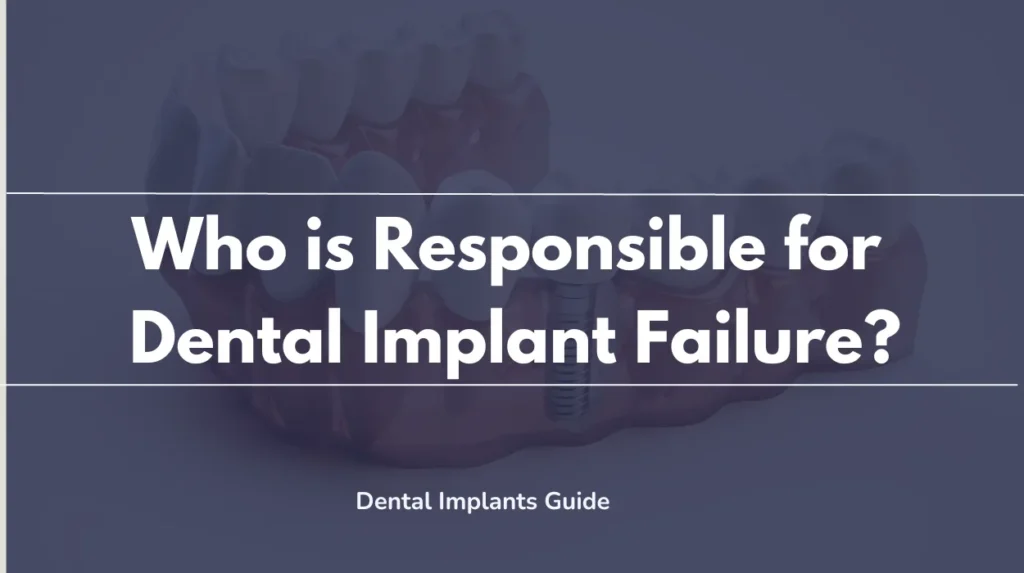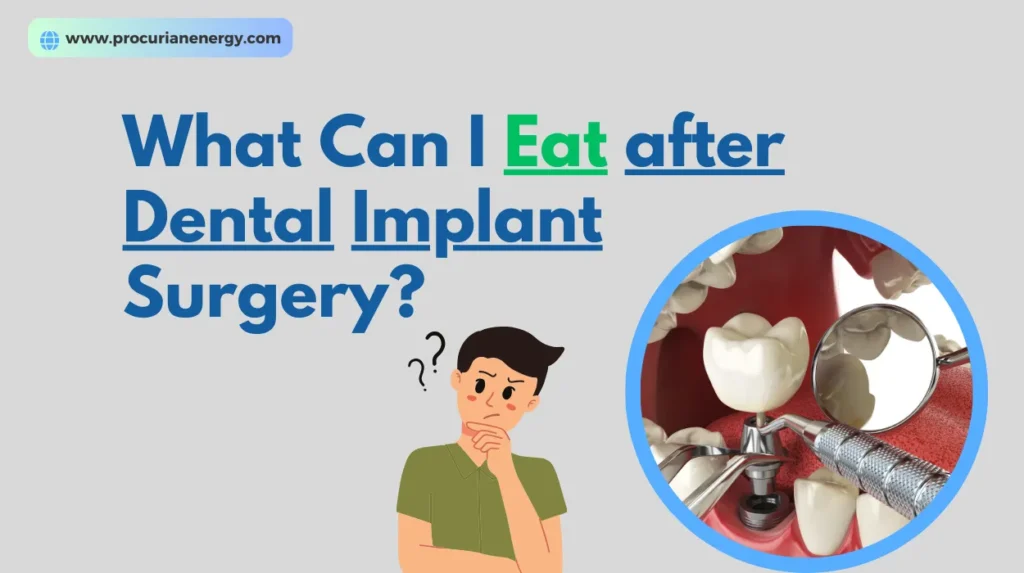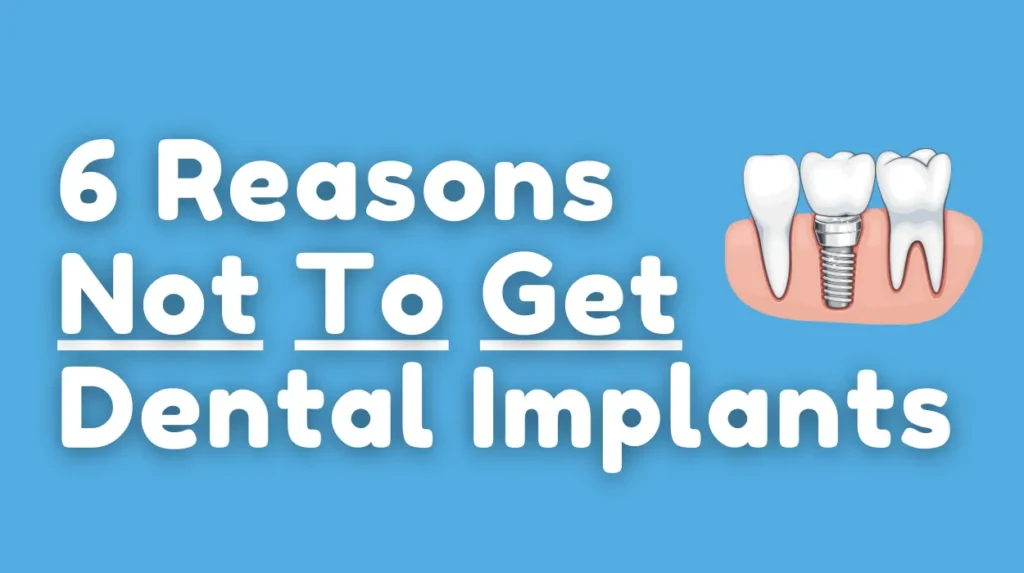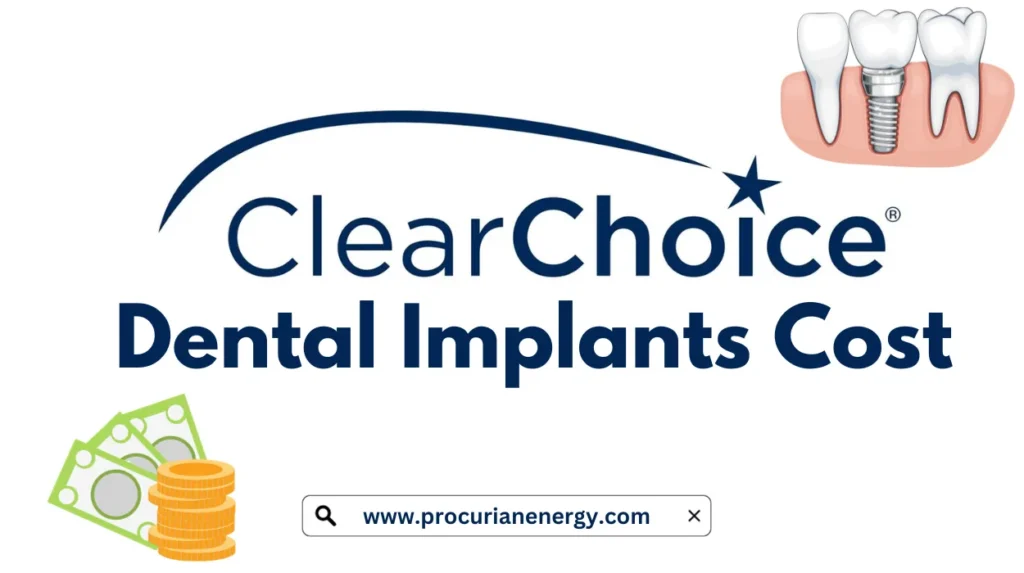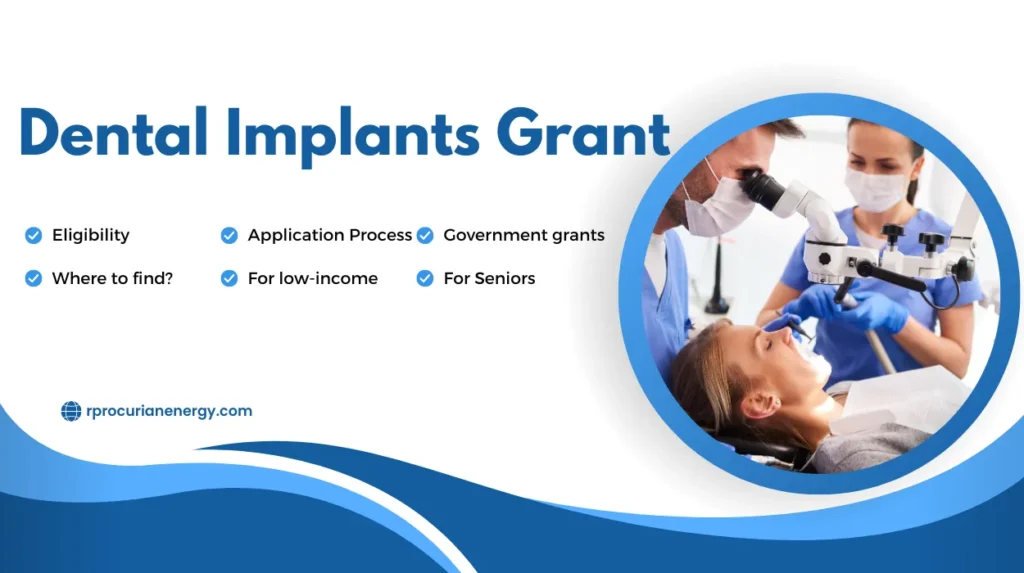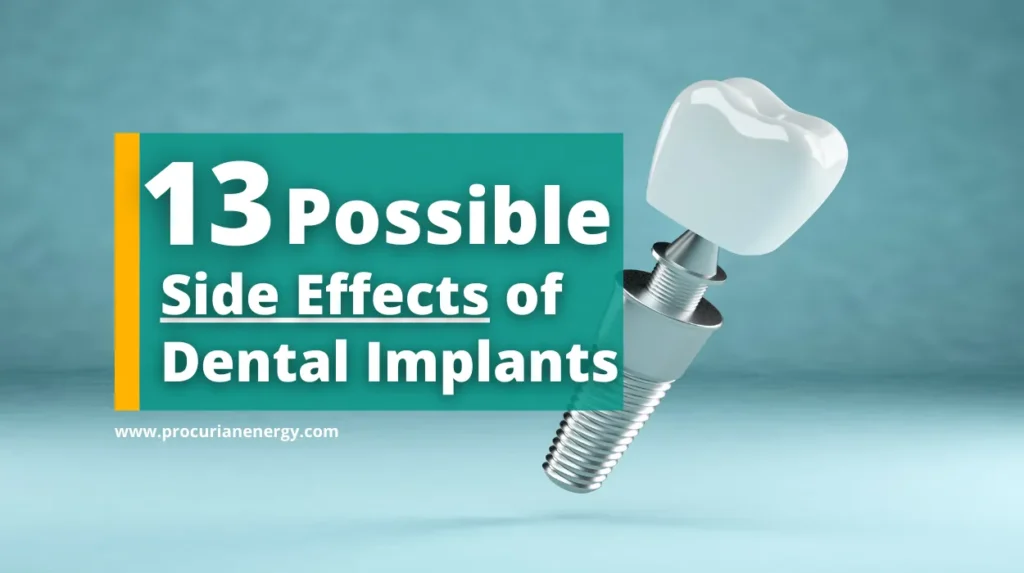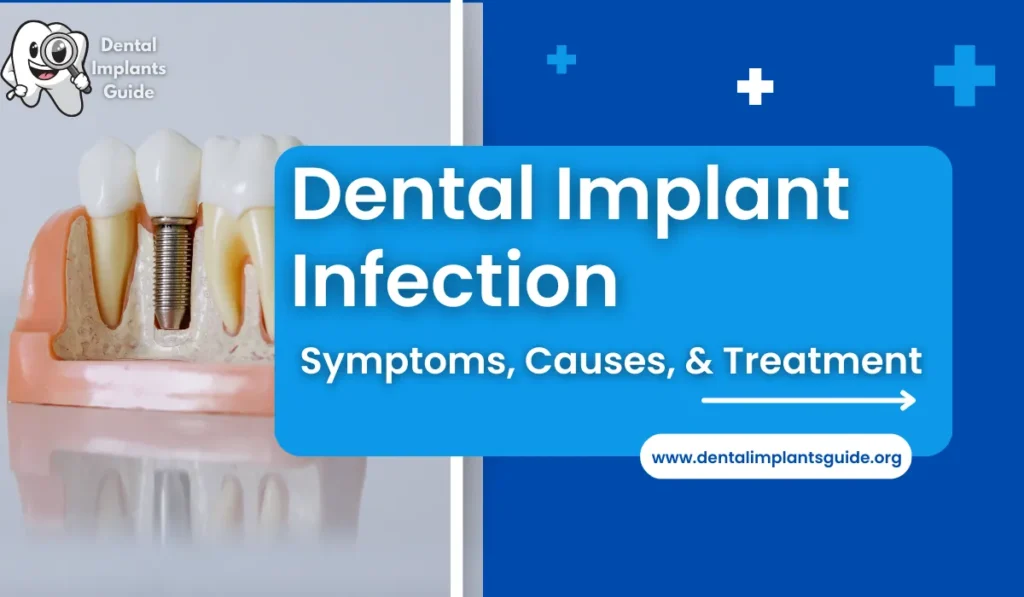
Dental implants are a popular and effective way to replace missing teeth. As with any surgery, there is a very slight chance of infection following dental implant placement.
A dental implant infection is a bacterial infection of the gums and bone surrounding a dental implant. It might develop into a significant problem if it is not immediately addressed.
In this blog post, we’ll discuss the symptoms, causes, and treatments for dental implant infections. We’ll also provide some guidance on how to prevent them.
What is a dental implant infection?
A dental implant infection is a bacterial infection that occurs in the gums and bone around a dental implant. It is also known as peri-implantitis.
Dental implant infections are relatively rare, but they can be serious if left untreated.
Symptoms of a dental implant infection
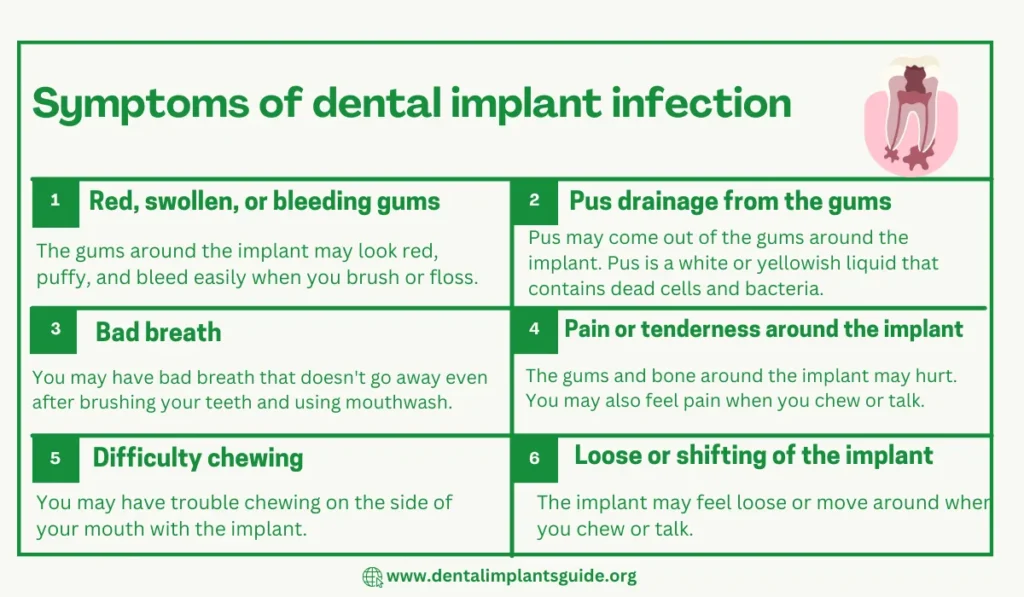
The symptoms of a dental implant infection can vary depending on the severity of the infection. Common symptoms are:
- Red, swollen, or bleeding gums around the implant ➜ The gums around the implant may look red, puffy, and bleed easily when you brush or floss.
- Pus drainage from the gums ➜ Pus may come out of the gums around the implant. Pus is a white or yellowish liquid that contains dead cells and bacteria.
- Bad breath ➜ You may have bad breath that doesn’t go away even after brushing your teeth and using mouthwash.
- Pain or tenderness around the implant ➜ The gums and bone around the implant may hurt. You may also feel pain when you chew or talk.
- Difficulty chewing ➜ You may have trouble chewing on the side of your mouth with the implant.
- Loose or shifting of the implant ➜ The implant may feel loose or move around when you chew or talk.
Rerlated Article ➦ 5 Best No Waiting Period Dental Insurance
Causes of a dental implant infection
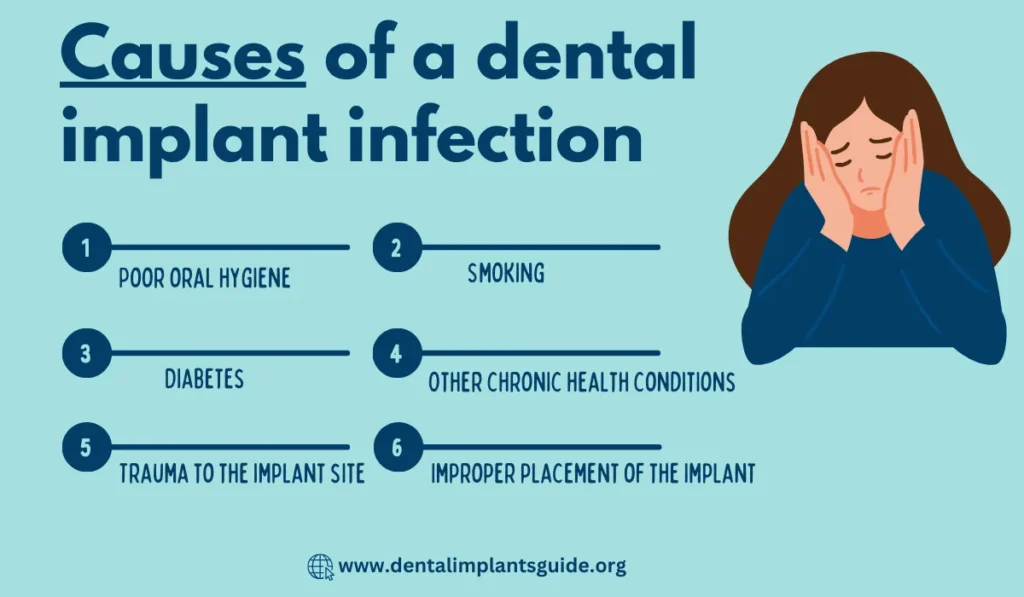
Your risk of getting a dental implant infection can be impacted by a number of factors, such as:
- Poor oral hygiene ➜ Plaque and bacteria may build up around your dental implant if you don’t regularly brush and floss your teeth. This might cause an infection.
- Smoking ➜ Smoking lowers immune function and makes it more difficult for the body to fight off infection. Additionally, it harms the tissues and gums surrounding your dental implant, increasing their susceptibility to infection.
- Certain medical conditions ➜ Diabetes and osteoporosis are two conditions that can increase your risk of developing a dental implant infection. These ailments can impair your immune system and hinder your body’s ability to heal.
- Immune system weakness ➜ People who experience immune system weakness as a result of a disease or medication are more likely to contract an infection.
- Trauma to the implant site ➜ If your dental implant site is injured, it can make it more susceptible to infection.
Rerlated Article ➦ 12 Best Countries For Dental Implants
Treatment for Dental Implant Infections
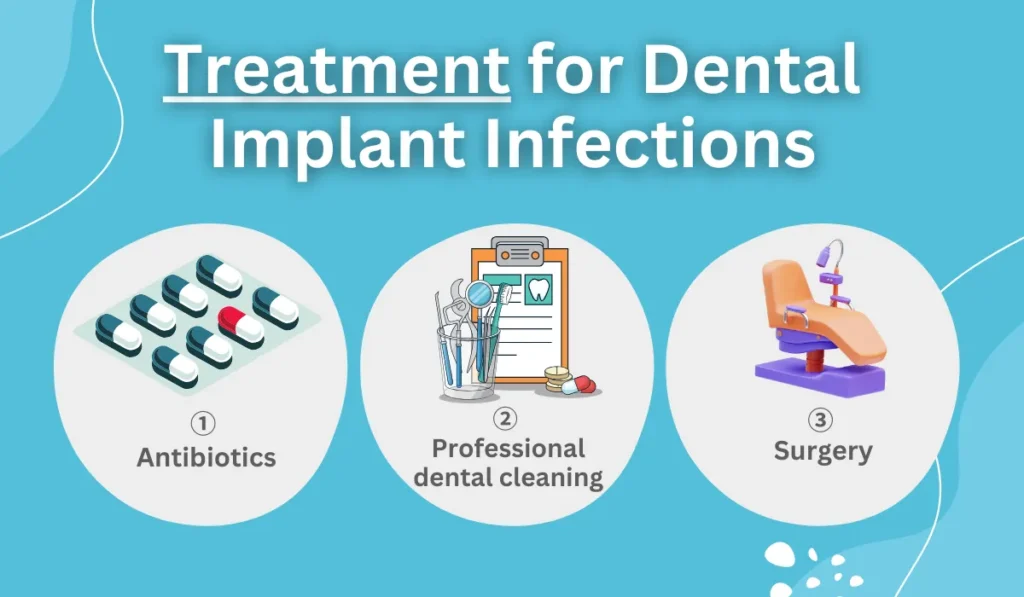
① Antibiotics
Antibiotics are used to kill the infection-causing bacteria. They can be ingested or directly applied to the implant site.
② Professional dental cleaning
Plaque and tartar can be removed from the implant and the surrounding gums by a professional dental cleaning. This may reduce the amount of bacteria and speed up the healing process.
③ Surgery
If the infection is severe or does not respond to antibiotics, surgery might be necessary to remove the infected bone and tissue. The implant may also need to be taken out. In the future, a replacement procedure might be possible if the implant is removed.
How to treat a dental implant infection at home?
There are many other treatments that can be taken to help in managing a dental implant infection, such as:
- Rinse with Salt Water➜ Mix half a teaspoon of salt in a glass of warm water and gently rinse your mouth a few times a day. It can help reduce some discomfort and clean the area.
- Pain Medication➜ Over-the-counter pain relievers like ibuprofen or acetaminophen can help with pain. Follow the recommended dosage on the label.
- Maintain Good Oral Hygiene➜ Keep brushing and flossing your teeth gently but thoroughly. Be extra careful around the infected area.
- Avoid Certain Foods➜ Stay away from hot, cold, and sugary foods and drinks, as they can irritate the infection.
- Soft diet ➜ Eating a soft diet can help to reduce the amount of pressure on the implant site.
How common is a dental implant infection?
Dental implant infections are not very common. Out of every 100 patients who receive dental implants, 4 to 10 will develop an infection. Antibiotics can usually be used to treat this minor issue.
How do you clean an infected implant?
Cleaning an infected dental implant is not something you should try at home. It’s important to see a dentist for proper treatment.
They have the right tools and knowledge to clean the infection safely. They might use special rinses, antibiotics, or even do a minor surgical procedure to clean the area.
So, if you suspect an infection, don’t wait – schedule an appointment with your dentist for the best care.
Rerlated Article ➦ Who is Eligible for Same Day Dental Implants?
What does an infection look like after implants?
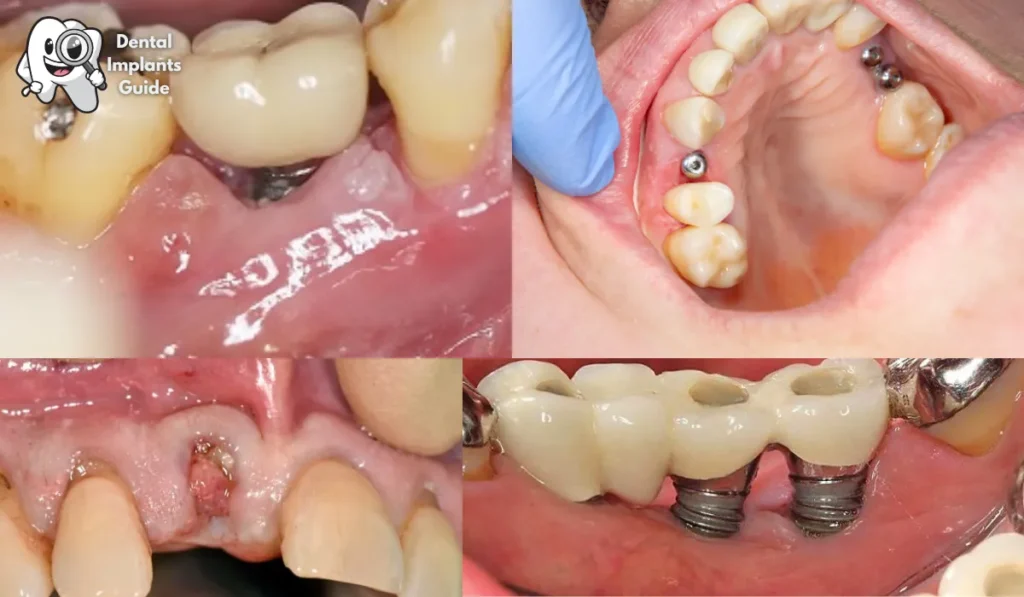
Can a dental implant get infected months later?
Yes, a dental implant can get infected even months after it’s put in. Infections can happen if you don’t take good care of your implant or if there are other dental issues.
If you notice any signs of infection, it’s essential to see your dentist for the right treatment. They can help you even if the infection occurs months after the implant was put in.
Important FAQs
What is a dental implant infection?
A dental implant infection is an infection of the gums, bones, and other tissues surrounding a dental implant. It can cause bone loss and implant failure.
What are the symptoms of a dental implant infection?
Some of the most common symptoms of a dental implant infection include red, swollen, or bleeding gums around the implant, pus drainage from the gums, pain or tenderness around the implant, difficulty chewing, bad breath, and a loose or shifting implant.
How is a dental implant infection treated by a dentist?
Treatment may involve antibiotics, removal and replacement, or gum surgery.
How long does it take to recover from a dental implant infection?
The recovery time for a dental implant infection can be within a few weeks or several months.
Will I be able to eat and drink normally while I am recovering from a dental implant infection?
Your dentist may give you specific instructions on what to eat and drink while you are recovering from a dental implant infection.
Do low-quality implants increase the risk of infection?
Yes, it’s important to choose high-quality implants and an experienced dentist.
Are over-the-counter pain relievers safe for an implant infection?
Yes, they can help with pain if you follow the recommended dosage.
What foods should I avoid with a dental implant infection?
Stay away from hot, cold, and sugary foods that can irritate the area.
Can a dental implant infection go away by itself?
Infections usually won’t clear on their own; they need dental treatment.
Final Thoughts
Dental implant infections are something to be cautious about, but with proper care and regular check-ups, the risk can be minimized. Remember, early detection and treatment are essential if you experience any symptoms of infection.
Your dental health is crucial, and dental implants can be a fantastic solution for those missing teeth. Just be sure to take good care of them and work closely with your dentist to ensure they remain infection-free.
If you ever have questions or concerns about your dental implants, don’t hesitate to reach us at through comment section. We’re there to help you maintain a healthy and beautiful smile.
So, keep brushing, flossing, and smiling, and your dental implants will stay healthy and infection-free for years to come.
